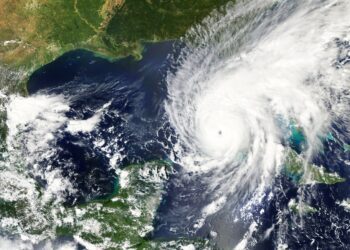Executive Summary
The impacts of climate change are creating new risks and exacerbating existing risks for individuals, communities, and the economy. Climate shocks and stresses disproportionately impact groups that have traditionally faced higher barriers to participating in the economy than the general population, including low-income communities, communities of color, and Tribal populations. Our team fielded a survey targeting professionals in the western United States from a broad range of sectors whose work on community development‒related issues impacts the personal and economic well-being of low-income communities and communities of color. Over 250 respondents shared their perceptions of how climate-related risks may be affecting the communities they serve and their organizations’ work.
Key Takeaways
- Most respondents perceive climate change‒related risk as already impacting the communities they serve.
- General awareness of climate-related risk is high among respondents; however, resources and capacity are limited, and collaboration could be increased.
- Respondents believe that the communities they serve and their organizations are generally not well prepared for climate-related risk.
- Lack of savings, lack of transportation options, lack of housing options in resilient areas, the threat of housing displacement, and worker health rank high among respondents’ perceived contributors to climate-related risk for the communities they serve.
- Lack of funding impedes respondents’ work to improve resilience for families and communities.
- Notably, respondents perceive day-to-day economic survival as taking precedence for individuals and families over concerns about climate risk and resilience.
Summary of Results
- The vast majority of respondents (90%) report that climate impacts are already affecting the population(s) they serve.
- Most respondents (81%) feel that the communities they serve are not well prepared for the impacts of climate change.
- About half (51%) of those surveyed feel that their organization is not well prepared to address the impacts of climate change on their work.
- Over one-third (39%) of respondents state that their organization is working to address climate-related risks and vulnerabilities in the communities they serve.
- A large majority (83%) of respondents report that they understand climate risks and vulnerabilities experienced by the communities they serve.
- Over two-thirds (72%) of respondents view a lack of housing options in resilient areas as a large contributor to climate-related risk for the communities they serve.
- Over half (62%) of respondents see a lack of savings as a large contributor to climate-related risk for the communities they serve.
- Roughly half (52%) of respondents view a lack of transportation options, especially in the event of an emergency, as a large contributor to climate-related risk for the communities they serve.
- Roughly half (52%) of respondents view the high cost of utilities as a large contributor to climate-related risk for the communities they serve.
- Roughly half (52%) of respondents see the ongoing risk of housing displacement as greatly exacerbating climate-related risk for the communities they serve.
- Roughly half (51%) of respondents believe that a lack of resilience in the existing housing stock contributes to climate risk by a large amount in the communities they serve.
- Roughly three-quarters (76%) of respondents view climate shocks and stresses as contributing a large amount to a reduced availability of housing in local economies.
- Over half (55%) of respondents see climate shocks and stresses as contributing a large amount to negative impacts on worker health.
- Over half (61%) of respondents believe that funding constraints limit climate resilience efforts by a large amount in the communities they serve.
- Roughly half (53%) of those surveyed believe that individuals’ more immediate concerns, notably their day-to-day economic survival, greatly impede climate resilience and efforts to improve it.
Courtesy Federal Reserve Bank of San Francisco/by Elizabeth Mattiuzzi and Eileen Hodge












